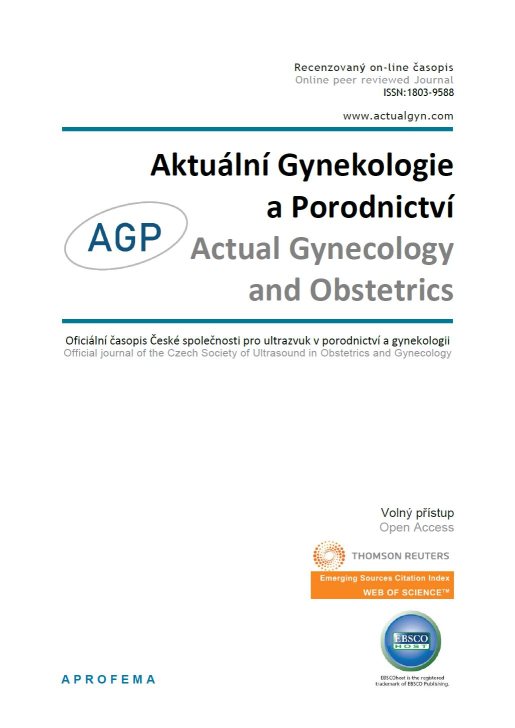











 Official publication of the Czech Society of Ultrasound in Obstetrics and Gynecology.
Official publication of the Czech Society of Ultrasound in Obstetrics and Gynecology.

Introduction: Birth weight is considered to be an important predictor of health status of population. Macrosomia and low birth weight have a negative short-term and long-term impact on the health of newborn. The aim of this retrospective study was to investigate the evolution of parameters - birth weight and length of newborns at the Clinic of Gynecology and Obstetrics in Kosice-Saca.
Materials and methods: In two reported period (1986-1990 and 2014-2018) we analyzed demographic data of newborns and their mothers hospitalized in the first private hospital in Kosice-Saca. We recorded demographic data such as neonatal birth weight, birth length, sex but also the parity and maternal age.
Results: Overall, there were enrolled 12,193 newborns. In both study periods, we recorded a higher percentage of boys, which was not statistically significant. A significant statistical difference was observed when we compared birth length and birth weight while there was a significant decrease in both parameters (P ˂ 0.001). In the group of newborns under 2,500 g where we compared the two groups, we have found a higher percentage in the period 2014-2018, the difference was statistically significant (P ˂ 0.05).
Conclusion: Birth weight has a significant impact not only on postnatal adaptation and short-term complications but also the long-term health and the risk of chronic diseases and not only in childhood but also during adolescence and adulthood. In our study, we confirmed the trend of global decline in birth weight and length at our clinic. However, it is necessary to conduct additional studies, which could reveal the factors influencing this trend.